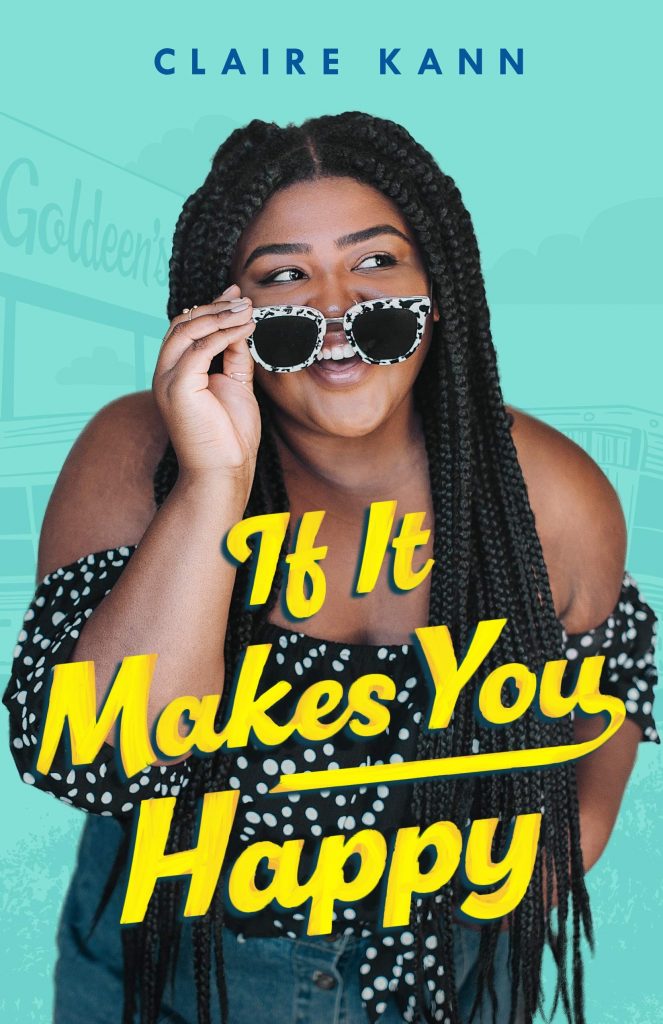 It’s been a few days since #BlackOutTuesday (and the conversations around that movement itself, an Instagram video by Brittany Packnett Cunningham discusses this, which Alyssia linked in her post Ode to Joy – check out the post & the video! There are a number of recommended reads that are, as the title of the post suggests, expressions of joy in the lives of Black characters in novels. Because to only publish & read about Black trauma is also an issue, which Alyssia discusses more in her post much more eloquently than I could cover here), and seeing as basically everyone on my Instagram feed posted black squares of solidarity, I’d like to start this post off with a prompt so we can all share & learn from one another: What did you learn or unlearn on #BlackOutTuesday?
It’s been a few days since #BlackOutTuesday (and the conversations around that movement itself, an Instagram video by Brittany Packnett Cunningham discusses this, which Alyssia linked in her post Ode to Joy – check out the post & the video! There are a number of recommended reads that are, as the title of the post suggests, expressions of joy in the lives of Black characters in novels. Because to only publish & read about Black trauma is also an issue, which Alyssia discusses more in her post much more eloquently than I could cover here), and seeing as basically everyone on my Instagram feed posted black squares of solidarity, I’d like to start this post off with a prompt so we can all share & learn from one another: What did you learn or unlearn on #BlackOutTuesday?
For my part, #BlackOutTuesday brought performative/optical allyship to the fore. I saw a number of posts and videos about how this movement was perhaps not the best of ways to support Black Lives Matter, especially as people were using the hashtag #blacklivesmatter and flooding out all the useful information that has been being shared & posted throughout the week on the hashtag with… literally empty blocks devoid of information. I saw a lot of good intentions, of people muting themselves so that we could hear Black voices, but I think many of us saw the reality of what actually ended up happening: we saw a sea of black squares with no useful information in sight. It ended up silencing every community and drowning out the very voices people were trying to let be heard more. Vox covers what happened pretty well and talks about how low-effort performative acts such as this that let people signal their solidarity without actually contributing to anything can be harmful to the very movements they are trying to signal their support for. If you’re confused, it might be helpful to check out this short post for 10 Steps to Non-Optical Allyship (for some reason WordPress does not want to embed this post, so I’ve linked it instead).
If you posted a black square, I’m not telling you to take it down (though if you used the hashtag #blacklivesmatter on it, you may want to consider deleting the post so it doesn’t clog up searches for actual information and updates), or saying that you’re a bad person. You’re not going to be going on this anti-racism journey and making it out without committing a single blunder (least of all because there’s no single “right” way to go about it – there are so many different ways to participate). None of us are. And you know what’s great about anti-racism? You don’t have to have completed purging yourself of internalized racism before you start doing the work! No one’s asking you to be perfect: you’re being asked to show up and do the work, and continue doing the work.
Just a note that this is going to be a very image-heavy post, with many links to Instagram posts & videos alongside links to other resources from the web (articles & compilations), because you have the time to swipe through a few slides on an Instagram post. WordPress is being a bit glitchy so if the instagram post doesn’t show embedded, please click on the link. Do the work and show up in ways that make a difference, because you’ve probably all seen this quote by Desmond Tutu being shared far and wide, “If you are neutral in situations of injustice, you have chosen the side of the oppressor”. Similarly, Elie Wiesel: “Neutrality helps the oppressor, never the victim. Silence encourages the tormentor, never the tormented”. Patrice C. Washington’s video on Instagram is one that I think really illustrates the point and drives it home.
If you are neutral in situations of injustice, you have chosen the side of the oppressor. (Desmond Tutu)
Neutrality helps the oppressor, never the victim. Silence encourages the tormentor, never the tormented. (Elie Wiesel)
So posting a black square and performing the act of solidarity by silencing yourself (do you see the irony here) is NOT ENOUGH.*
Below the cut, you will find:
- Titles on Anti-racism that VPL owns, whether that’s a physical book (see our Curbside Pickup service), an e-book or e-audiobook, or a movie. Our staff have created Bibliocommons lists that I will link to below for all age groups: children, teens, and adults.
- Alyssia has also posted a great discussion on how we need to focus not just on Black people’s trauma, but also pay attention to Black life and all that the joys and pains it comes with, so as not to define Black people by their personal/individual and intergenerational trauma.
- Anti-racism 101s. Most of these come from Instagram, which means that they are snappy and to the point, so if you don’t have enough time to go through an entire list of resources and full books, these can give you a good place to start. (I guess the irony is that the compilation that is this post is also a long list to filter through.)
- I’ll also be linking to guides & resources aimed at non-black POCs, because so much out there is aimed at white (and white-adjacent) people that it can feel like you’re not being seen or spoken to (YOU ARE.).
- Canadian Resources/Info/Links because it’s not just a States problem
- Reading and Watching Recommendations out in the world that may or may not be owned by VPL. These are going to be lists from outside sources, and I’m including them in part because we don’t have everything on the lists, but also because there are Netflix films on them that VPL doesn’t offer access to, that you might be able to watch on your own dime.
It’s going to be a long post because of all the embedded Instagram posts, but I’ll be labeling each category/heading clearly in larger text so you can scroll to what you want to find more easily. (Or just use ctrl+F.) Let’s get to it.
 Just before I sat down to write this post, I watched
Just before I sat down to write this post, I watched